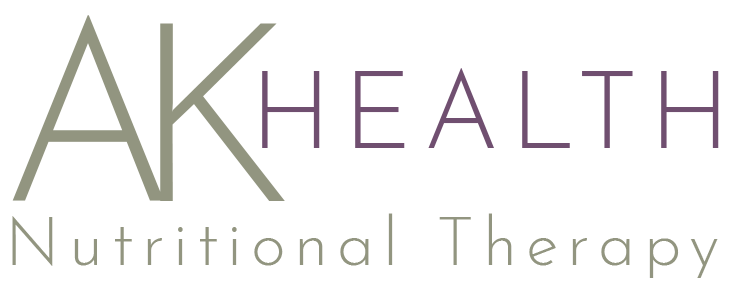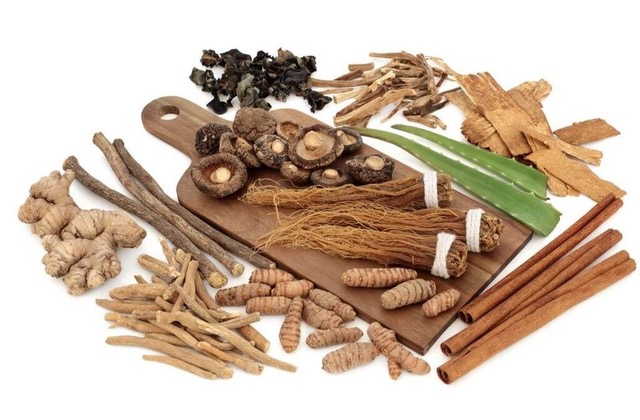Could you do with a little extra sleep, more energy and a buffer against the stressors that life throws at you? Good news, there is a group of plants that can help with exactly this and much more. Adaptogens have gained in popularity in recent years and for good reason. As the name suggests, they can help you ‘adapt’ and thrive despite life’s inevitable ups and downs. Our busy modern lives demand a lot from us physically, mentally and emotionally. Adaptogens can help ease the burden and mitigate the side effects of stress.
What are Adaptogens?
‘Adaptogens’ are certain herbs and medicinal mushrooms which possess unique properties that help modulate the effects of stress. When you face stressors such as a busy workday, a hectic schedule or even intense physical exercise, they can support the body to recover and become more resilient.
Adaptogens have been prized in traditional medicinal practices such as Chinese Medicine and Ayurveda for their calming and restorative effects as well as much more wide-ranging benefits from boosting mental clarity to improving sleep.
Some examples of adaptogens include ashwagandha, ginseng, maca, rhodiola, tulsi and turmeric as well as medicinal mushrooms such as reishi and chaga.
How do Adaptogens work?
Adaptogens have a broad, non-specific effect and work on rebalancing multiple body systems at once. In technical terms, they help control the release of stress hormones from the adrenal glands, which can be important in times of acute and chronic stress. They can also assist the body’s immune system during times of stress and infection. Although adaptogens are potent medicinal agents, they are non-toxic and thought to be safe for long term use.
Each adaptogen has its own unique set of properties and benefits, which mean you can choose what’s best for your current needs by working with a trained healthcare practitioner such as a Nutritional Therapist or Herbalist.
What can Adaptogens help with?
Adaptogens are great all-rounders because they may both prevent and protect against side effects of stress and while they are known mostly for their ability to mitigate those effects, they have many additional potential researched benefits including:
- Reducing tiredness & fatigue
- Supporting hormonal balance
- Increasing mental and physical stamina
- Supporting immune function
- Stabilising mood
- Reducing anxiety and depression
- Supporting quality sleep
- Reducing levels of inflammation
- Providing antioxidant support
- Regulating blood sugar levels
- Improving concentration
- Enhancing mental performance
Who are Adaptogens suitable for?
Adaptogens can be a great addition to your supplement routine, especially if you’re looking for more support with a busy and stressful lifestyle. Signs that you could benefit from adding an adaptogen might include insomnia, irritability, brain fog, anxiety and lethargy.
Adaptogens are thought to be safe to use for most people, but always check with a healthcare provider before taking any new supplements.*
*NOTE: Adaptogens can interact with certain medications so check with your healthcare provider before using them.
How can I take Adaptogens?
Adaptogens comes in many forms including:
- Tinctures
- Capsules
- In drinks such as teas, mushrooms coffees and latte mixes
The dose you need to take depends on several factors including which adaptogen you are taking and which purpose you are using it for. As a general guideline you can refer to the directions on the package of the product or consult your practitioner.
Examples of Adaptogens
Adaptogens can either be used individually or prepared in synergistic blends. The research on specific adaptogens is an evolving field, but their benefits have a long history of use in ancient medicines. They have a broad, non-specific effect and some actions may sound contradictory, for example ‘boosting energy and calming’, but this is part of the way they work. They can work on several bodily systems at a time addressing any imbalances.
Here are some examples of individual adaptogens, their uses and benefits as well as ideas on how to add them to your day.
Ashwagandha (Withania Somnifera)
Ashwagandha is a great overall adaptogen for stress, anxiety, burnout and fatigue. It has traditionally been used in Indian Ayurvedic medicine as a tonic to aid overall wellbeing. It is particularly good for reducing fatigue, balancing cortisol, rebuilding strength and encouraging a more restful sleep.
Researched benefits may include improving resistance towards stress, reducing the stress hormone cortisol, decreasing anxiety, reducing high blood sugar and high cholesterol, relieving insomnia, supporting thyroid health, enhancing immune health, reducing inflammation and boosting mental performance and memory.
Ashwagandha comes as a powder, which can be added to food and drink or it can be taken in capsule form or as a tincture. The recommended dosage is 200-500mg a day for general support. You might need to take it for at least three months to see a difference.
*NOTE: Ashwagandha is part of the nightshade family and therefore may not be suitable for those with sensitivity to this family of plants
Maca (Lepidium meyenii)
Maca is a traditional Peruvian food rich in vitamin C and important minerals like iron and zinc. Additionally, research suggests that it may have a balancing effect on hormones, improve energy levels and physical stamina, increase libido and fertility, moderate menopausal symptoms, enhance mood, and support memory and concentration.
Maca is best consumed in the gelatinized form, which makes it easily digestible and bioavailable. It comes as a powder, which can be added to food and drink or it can be taken in capsule form. Regarding dosage, follow your practitioner’s recommendations and consult the package, but it’s generally considered safe to take 3g a day.
Reishi (Ganoderma Lucidum)
Reishi is a medicinal mushroom with a history of traditional use in Asia. It is rich in several health-supporting compounds and research has shown that it may support immune health, improve sleep latency and duration, balance blood sugar, protect brain health, support cardiovascular health and contain anti-aging and anti-inflammatory properties.
Reishi can be taken as a powder, in a capsule, as a tincture or in a coffee mix. The dosage varies greatly depending on which form you are taking the supplement. Follow the guidelines on the package.
Rhodiola (Rhodiola rosea)
Rhodiola is a herb also known as Arctic Root and has traditionally been used in Russia and Northern Europe for symptoms of stress and low energy.
Long-term research shows that it may be beneficial for reducing anxiety, increasing energy, improving endurance and stamina, protecting brain health, enhancing mental acuity, and improving symptoms of depression.
Rhodiola comes in powder or capsule form and the recommended dosage is 400-600mg per day or as directed by your practitioner.
Tulsi (Ocinum Sanctum)
Tulsi, also known as Holy Basil, is a herb native to Asia with a long history of use for disease prevention, and modulation of stress and anxiety.
Research suggests that it may have beneficial effects on anxiety, mood, blood sugar levels, blood pressure and cholesterol, as well as having potent antioxidant properties protecting cells from DNA damage.
Tulsi can be taken as a tincture, tea or in capsules. Follow directions on the supplement packaging and from your practitioner, anywhere from 300mg-1g a day can be used depending on needs. Tea can be used 2-3 times a day.
Ready to reap the benefits of adding Adaptogens to your diet?
There’s a lot to take into consideration when choosing which adaptogen is right for you. It’s best to seek guidance from a trained healthcare practitioner to choose the best ones for your needs so that you can get the most benefits.
Click below to book a call to discuss.
References:
Lopresti AL, Smith SJ, Malvi H, Kodgule R. An investigation into the stress-relieving and pharmacological actions of an ashwagandha (Withania somnifera) extract: A randomized, double-blind, placebo-controlled study. Medicine (Baltimore). 2019 Sep;98(37):e17186. doi: 10.1097/MD.0000000000017186. PMID: 31517876; PMCID: PMC6750292.
da Silva Leitão Peres N , Cabrera Parra Bortoluzzi L , Medeiros Marques LL , Formigoni M , Fuchs RHB , Droval AA , Reitz Cardoso FA . Medicinal effects of Peruvian maca (Lepidium meyenii): a review. Food Funct. 2020 Jan 29;11(1):83-92. doi: 10.1039/c9fo02732g. PMID: 31951246.
Ahmad MF. Ganoderma lucidum: Persuasive biologically active constituents and their health endorsement. Biomed Pharmacother. 2018 Nov;107:507-519. doi: 10.1016/j.biopha.2018.08.036. Epub 2018 Aug 13. PMID: 30114634.
Cropley M, Banks AP, Boyle J. The Effects of Rhodiola rosea L. Extract on Anxiety, Stress, Cognition and Other Mood Symptoms. Phytother Res. 2015 Dec;29(12):1934-9. doi: 10.1002/ptr.5486. Epub 2015 Oct 27. PMID: 26502953.
Jamshidi N, Cohen MM. The Clinical Efficacy and Safety of Tulsi in Humans: A Systematic Review of the Literature. Evid Based Complement Alternat Med. 2017;2017:9217567. doi: 10.1155/2017/9217567. Epub 2017 Mar 16. PMID: 28400848; PMCID: PMC5376420.


